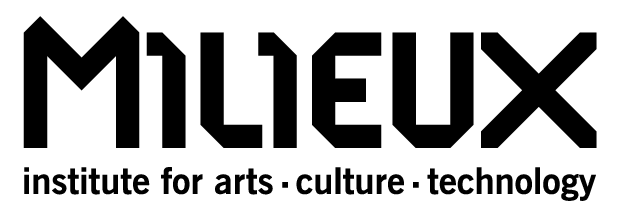
- This event has passed.
Financializing Infrastructures Winter Speaker Series
2022-02-04 - 2022-03-18

The new year is already flying by at a rapid pace! The Speculative Life Cluster has already begun an incredibly compelling online project, the Financializing Infrastructures Winter Speaker Series. Read on to find out about the final three events, following the first that happened on January 21st, and click here for the full post on the Speculative Life website!
2. Friday, February 4, 2:00 PM EST
Workshop — Alia Nurmohamed, Futureproofing: Real Options as a Conceptual Tool in the Financialization of Everyday Life
Zoom Link
The COVID-19 pandemic spotlighted uncertainty in people’s lives and a desire to “futureproof”: anticipate, plan, and mitigate unexpected future shocks. Originating in financial derivatives modelling, real options have gained traction over the last two decades as a decision-making tool that captures the flexibility embedded in projects across various industries such as real estate, pharmaceutical R&D, and natural resources. This workshop aims to start a conversation about mobilizing real options – options that are not traded on financial markets – as a conceptual tool to understanding how financialized thinking seeps into everyday life.
Alia Nurmohamed is a PhD student in Social and Cultural Analysis at Concordia University. Alia’s research focuses on how conflicting and intersecting responsibilities can lead to feelings of grief in motherhood. Prior to joining the Department of Sociology & Anthropology, Alia worked for 10 years in real estate private equity and consulting. She holds a B.Com in Finance from McGill University, an MBA from the University of Warwick, and BA in Sociology from Concordia University.
3. Friday, February 18, 1:00 PM EST
Kathryn Furlong, Trickle-down debt: Infrastructure, development, and financialisation, Medellín 1960-2013
Zoom Link
In many Latin American cities, infrastructure was largely financed through development lending over the second half of the 20th century. Exacerbated by debt crises and currency devaluations, public utilities became holders of significant levels of negative value. This encouraged public debt financialisation in order to mitigate the effects of shifting interest rates and devaluation. For David Harvey, negative value is the hallmark of contemporary capitalism whereby one must produce, not for profit, but to retire debt. This paper examines these issues through a case study of urban infrastructure financing, debt, and tariffs in Medellín, Colombia from 1960 to 2013.
Kathryn Furlong is an Associate Professor in the Department of Geography at the Université de Montréal and former Canada Research Chair in Water and Urbanization. She holds a doctorate in human geography (UBC). Her research focuses on the social and environmental consequences of political-economic restructuring for water management and governance, particularly in the context of cities. Her research brings together the disciplines of economic and urban geography and political ecology while addressing issues related to the provision of municipal services, socio-technical networks, consumption and the links between practice and ethics. Her book Leaky Governance: Alternative service delivery and the myth of water utility independence (UBC, 2016) addresses these issues in the Canadian Context.
4. Friday, March 18, 1:00 PM EST
Hannah Appel (UCLA), From Debtors Prisons to Debtors Unions
Zoom Link
What does it mean to build collective power within and against finance capitalism? The Debt Collective is organizing a debtors’ union using an emancipatory activation of household debt: Alone, our debts are a burden, but together they make us powerful. Household debt leveraged collectively in the threat of a debt strike creates the power to remake contemporary financial relationships. This talk explores the work of the Debt Collective to build counterpower using student debt, carceral debt, medical debt, housing debt and more, as leverage to abolish unjust debts and build the reparative public goods we need.
What does it mean to build collective power within and against finance capitalism? The Debt Collective is organizing a debtors’ union using an emancipatory activation of household debt: Alone, our debts are a burden, but together they make us powerful. Household debt leveraged collectively in the threat of a debt strike creates the power to remake contemporary financial relationships. This talk explores the work of the Debt Collective to build counterpower using student debt, carceral debt, medical debt, housing debt and more, as leverage to abolish unjust debts and build the reparative public goods we need.
